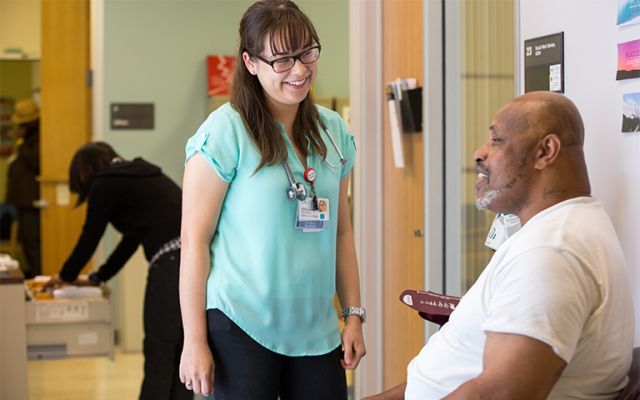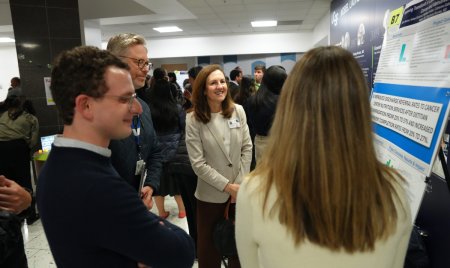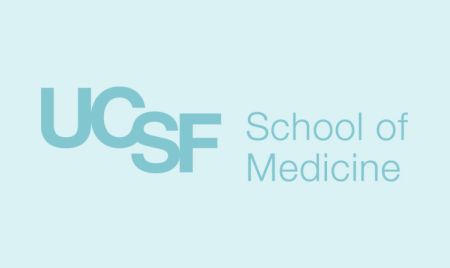Final Phase of Bridges Curriculum Launches with Training in Advanced Clinical Skills and Research Design

Medical Student talks to patient in clinic
In March, rising fourth year medical students began Career Launch, the final segment of UCSF’s Bridges curriculum. In the words of the Associate Dean for Curriculum John Davis, PhD, MD, Career Launch provides an “opportunity for students to consolidate all of the learning that has happened as part of medical school and to apply that to areas of interest for them.” A guiding question the curriculum designers sought to answer, according to Dean Davis, was “how to provide value to learners” in the capstone stage of their medical school careers.
To achieve these nuanced goals of providing flexibility and structure while infusing worth and value into the curriculum, Career Launch began with two four-week introductory courses: “Introduction to Career Launch” (ICL) directed by Dr. Bradley Monash and “Designing and Conducting Research” (DCR) co-directed by Drs. Meyeon Park and Rebecca Graff. In the words of Dr. Monash, ICL aims to “continue the themes within Bridges, which layers education on itself. Students are exposed to increasingly complex and sophisticated concepts” and this course will “build upon the foundational work” of the earlier stages of the curriculum. The course directors designed the course to prepare students for the next phase of their clinical training. ICL helps students transition from the core clerkships and into sub-internships by framing and clarifying the “knowledge, skills and attitudes” essential to thrive in sub-internships. To prepare students for this “transition from student to physician,” course directors worked with educational leaders, student representatives and sub-internship directors from across the university to “define the role and responsibilities of sub-interns,” explained Dr. Monash.
Whereas ICL sharpens student clinical reasoning skills and clinical practice, the course DCR focuses on cementing skills in inquiry and research design. In the initial stages of the Bridges inquiry curriculum, students learn to develop a research question and analyze available research to determine what aspects of that question have already been explored. During Career Launch, students will learn how to design a research project, collect the necessary data or produce the necessary materials to answer that question, and ultimately to produce a product detailing results and conclusions. According to course co-director Dr. Park, “Designing and Conducting Research is based off the long-standing UCSF course, Designing Clinical Research. In Career Launch, though, the curriculum will expand” to include scholastic training for “students doing community engagement projects, quality and safety scholarship or basic science questions, with the goal of making the course applicable for students with a wide array of interests.” To meet the diverse scholarship interests of students, co-director Dr. Graff explains that the course “includes Selectives during which faculty with expertise in the different domains [of science] provide content specific” to that domain in order to train students in the methods necessary to participate in rigorous and complex thinking across disciplines. To train students in the skill of research proposal writing, the course guides students in the creation of their proposal for a Deep Explore project. Deep Explore is a period of 12-20 weeks of protected time for students to perform scholarship. Students pair with a mentor with relevant expertise in health care or the domains of science and pursue their intellectual passions. Deep Explore serves as the capstone of the inquiry curriculum, with the goal to cement the habits of mind of lifelong learning necessary for a robust and thriving medical practice.
Students completed the Introduction to Career Launch and Designing and Conducting Research course at the end of March. For more information about the other components of Career Launch please visit: Career Launch – Highly Individualized Phase of Bridges Curriculum.









